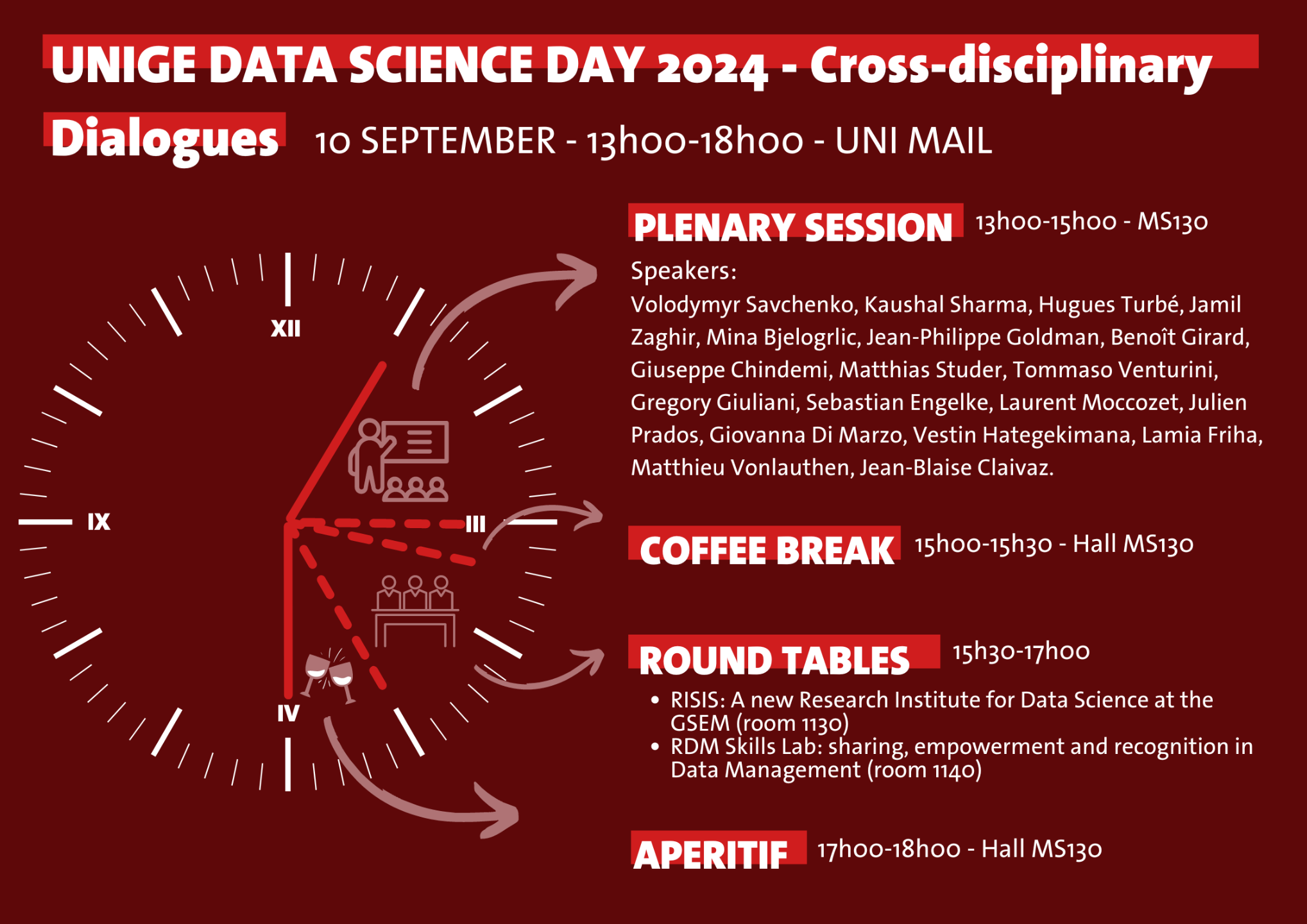UNIGE Data Science Day
The UNIGE Data Science Day is a scientific symposium for researchers at the UNIGE, which takes place at the beginning of the academic year.
Each year, the CCSD stimulates a collective reflection on a particular theme. This reflection is introduced during the UNIGE Data Science Day and continued in the framework of other activities launched by the Center throughout the year. This theme is intended to be precise enough to encourage a significant scientific contribution and a rich dialogue, but also transversal enough to allow for interdisciplinarity.
For its 2024 edition, the theme of Data Science Day is "Cross-Disciplinary Dialogues: Celebrating Collaborative Excellence in Data Science".
This meeting will take place on September 10, 2024 from 1:00 pm to 6:00 pm at Uni Mail.
2024 Theme: Cross-Disciplinary Dialogues
Entitled “Cross-Disciplinary Dialogues: Celebrating Collaborative Excellence in Data Science”, the 2024 edition of the Data Science Day seeks to bring together researchers and practitioners who have embarked on joint ventures, marrying methodological expertise from statistics and computer science with domain-specific knowledge from various disciplines. This year's Data Science Day aims to highlight and celebrate the achievements born from such collaborations, including those nurtured within the UNIGE's Competence Center in Data Science since its inception in September 2020. We invite these collaborative teams to share their success stories, challenges, and insights gained through their partnerships. Our goal is to unearth best practices and illuminate the essential role of collaboration in advancing Data Science research and application.
Therefore, we welcome submissions that explore topics including, but not limited to:
- Insights from teams currently navigating collaborative data science projects, highlighting interim challenges and adaptive strategies.
- Case studies of successful collaborations between methodological and domain specialists, outlining the process, challenges, and outcomes.
- Discussions on projects that were halted or faced significant obstacles, sharing the lessons learned and the resilience required in such endeavors.
- Innovative strategies for fostering interdisciplinary cooperation in data science projects, including overcoming barriers and leveraging diverse expertise.
- Best practices and insights derived from collaborative data science research, with a focus on methodological integration and mutual learning.
- The role of centers and networks in facilitating interdisciplinary research in data science, including lessons learned from the Competence Center in Data Science at UNIGE.
- Future directions for collaborative data science research, highlighting emerging opportunities, fields of application, and potential impacts on society.
Submissions are encouraged from researchers across all levels, from graduate students to senior faculty members, representing the broad spectrum of disciplines engaged in data science. Proposals will be for oral presentations.
Program

Registration
Interested in taking part of the Data Science Day 2024?
click here >>
(registrations are open until the 1st of September 2024)
